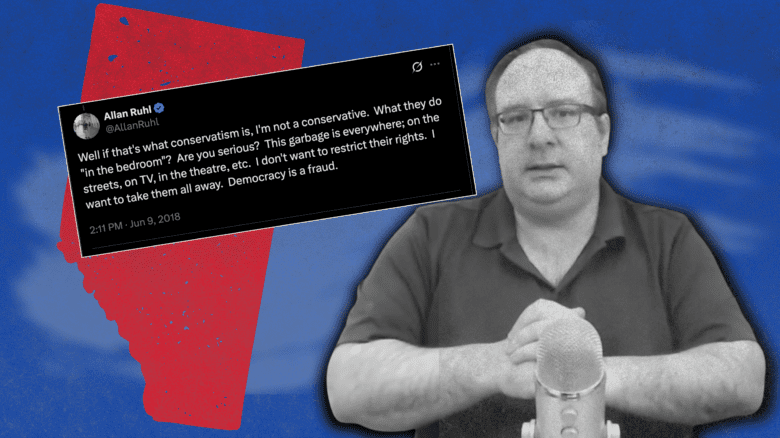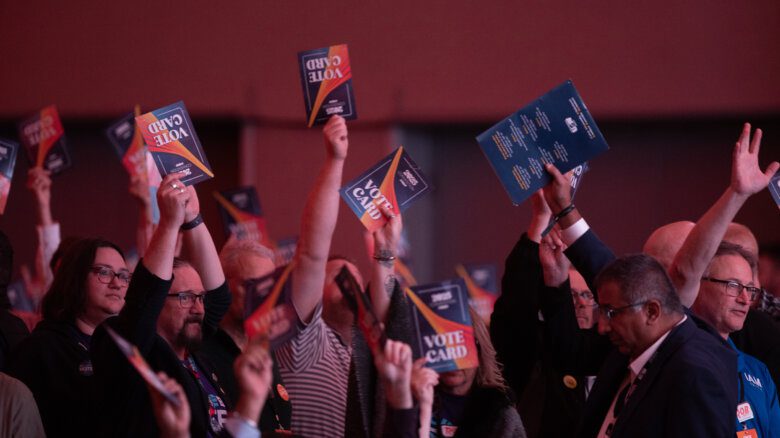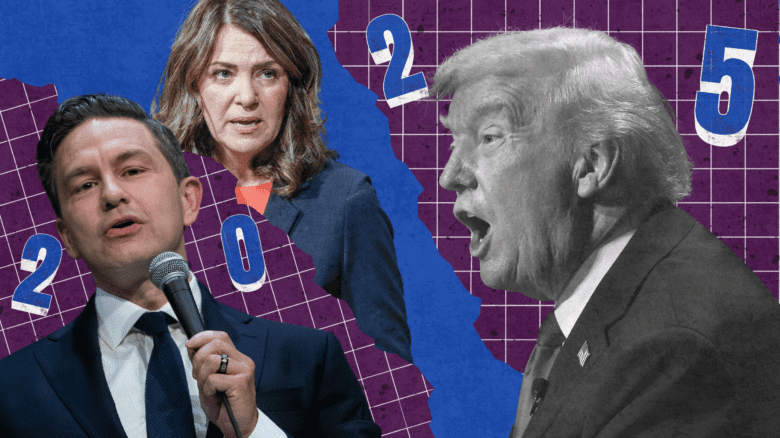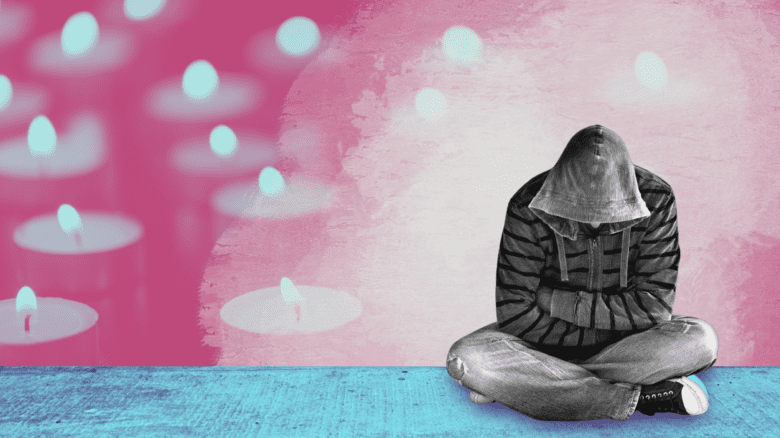The government of Saskatchewan has given trans kids new reasons to feel anxious before the school year starts.
Saskatchewan education minister Dustin Duncan announced Tuesday that teachers would need to get parental consent when students under 16 want to change the names or pronouns they go by in the classroom, CTV News reported. As part of this change, parents would also need to be notified about the school’s sex-education curriculum, and have the opportunity to pull their child out of sex-education classes.
According to Duncan, the move comes after parent and teacher complaints and is intended to standardize pronoun and naming policies across the province—but it’s already been panned by advocates for queer kids.
“Implementing policy that could result in increased harm to vulnerable youth is disgraceful. Some unsupportive families have kicked their kids out of the house or resorted to physical violence. Shredding the rights of students is repulsive,” Harini Sivalingam, director of the Equality Program at the Canadian Civil Liberties Association, told CTV. The Equality Program also noted that it would take legal action against the province.
Melody Wood, the board chair of the LGBTQ2S+ advocacy organization OUTSaskatoon, and Rose Gilks, the interim executive director of the organization, echoed these sentiments in a statement to Xtra, emphasizing that the policy favours parents over the well-being of students.
“If the education system is focused on keeping parents/guardians happy, there will be more students struggling in, or leaving, the system. For some children, school may be the only safe space they have, and this policy may force some children to come out to their families (who are not out to their families) to have their pronouns respected in school.
“The intent of supporting students and parents and recognizing the important role that parents and guardians have in protecting and supporting their children as they grow and develop seem well intentioned, but is not supportive of students who may be struggling as they question their own identity,” they say.
Although Duncan said that there wouldn’t be punishment for teachers who don’t follow the new rules, and that there would be guardrails in place for trans students who were afraid of backlash from their parents around names and pronouns, it is unclear what those protections would look like. Duncan did say Tuesday that parents would be alerted about any changes in gender identity as well, under the policy. Moreover, it seemed like there would be some exceptions to the name change policy: a student named “Timmy” could go by “Tim.”
This move echoes a similar one made in New Brunswick in June, where Premier Blaine Higgs rolled back policy allowing students to go by the correct name and pronouns without any parental notification. Under the New Brunswick policy, trans kids who didn’t want to be outed to their parents would need to work with a psychologist or social worker to develop a plan to tell their parents. The plan was also created because of complaints from students and teachers, the New Brunswick government said—though it was criticized for failing to produce any evidence of these complaints.
As with the new Saskatchewan policy, the New Brunswick policy sparked fierce and immediate backlash. Two ministers quit in protest, students staged walkouts and Prime Minister Justin Trudeau criticized the move, saying, “We need to stand against this.” Nicki Lyons-MacFarlane, who works with Imprint Youth Association in Fredericton, New Brunswick, told the Washington Post that the transphobia in the United States has been spreading to Canada. And within Canada, experts pointed out that the New Brunswick policy provides a blueprint for other provinces to follow—something Saskatchewan officials have clearly picked up on.
“A lot of this is the right-wing, anti-trans movement [in the United States] that is spreading,” Lyons-MacFarlane said. “That has kind of been the launching point for it here.”
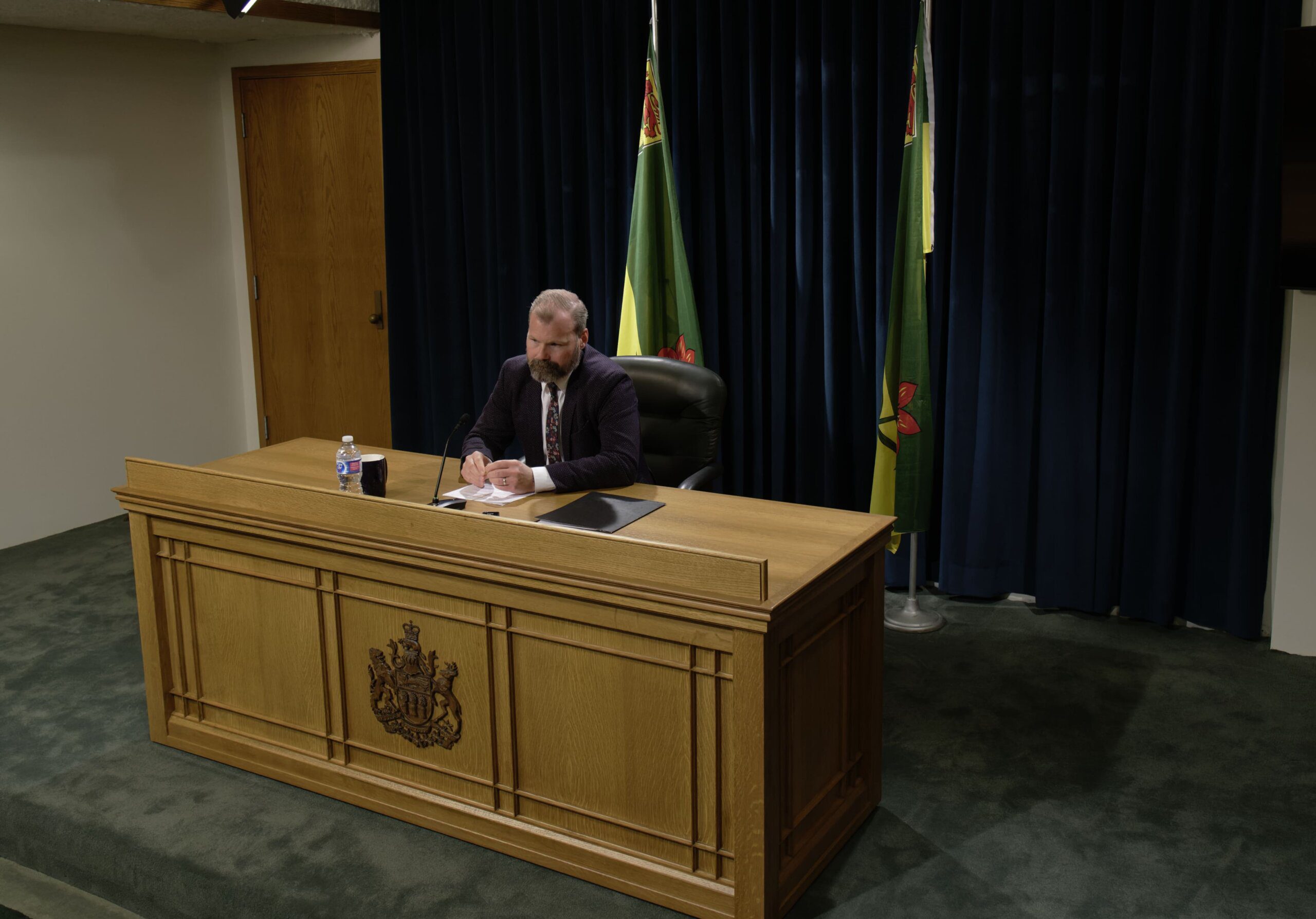

 Why you can trust Xtra
Why you can trust Xtra